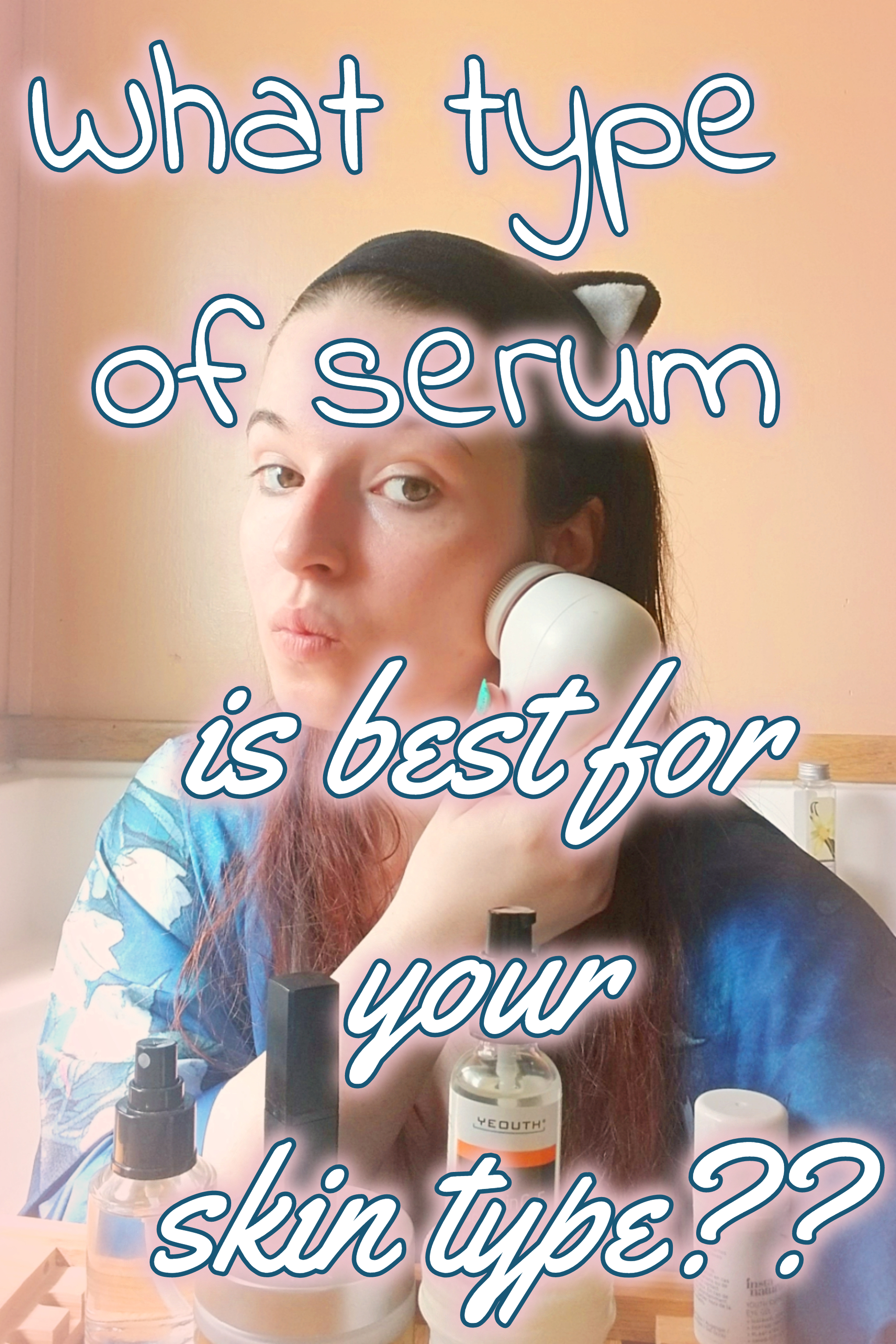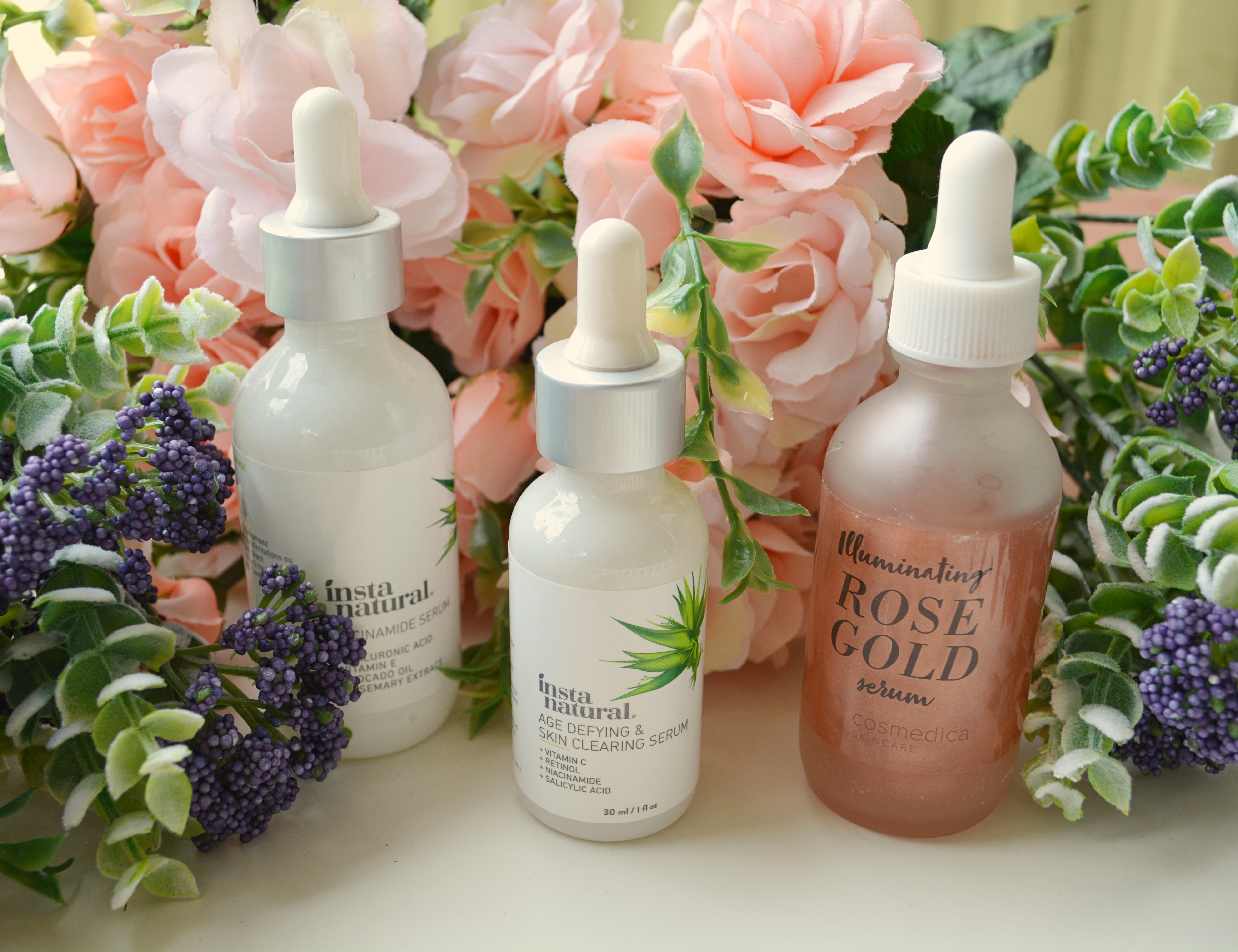
Picking out a great serum is a key step in building any skincare routine. There are countless types of serums and it can be overwhelming to figure out what is best for your specific skin type. Today I’m breaking down the most common types of serums, what ingredients are best for your skin type, and how to incorporate a new serum into your routine. You’re also not tied down to just one type of serum so feel free to mix and match!
This post contains affiliate links; if you snag a product through my link it will send some spare change my way to keep this slice of the internet up and running.
What serum is best for acne prone skin?
Let’s start with the area that I (unfortunately) have the most experience in. What ingredients are best for acne-prone skin types?
- Vitamin C -increases collagen production, enhances skin’s repair process, reduces inflammation.
- Retinol – an antioxidant, reduces inflammation.
- Zinc – soothes irritation, regulates oil production.
- Salicylic Acid -unclogs pores.
- Glycolic Acid– exfoliates and lightens discoloration.
- Tea Tree Oil– antimicrobial and anti-inflammatory.

What ingredients are good for dry skin?
- Vitamin E -an antioxidant, protects cells from oxidative damage.
- Niacinamide -improves skin elasticity, increases ceramide levels (ceramides are lipids that help form the skin’s barrier and help retain moisture)
- Glycolic Acid– exfoliates and lightens discoloration.
- Hyaluronic Acid -helps skin retains moisture.
- Alpha Hydroxy Acids (AHAs)– exfoliate and brighten
Serum ingredients that benefit dull skin, acne scars, and help even out skin tone:
- Green Tea Extract– antioxidant, anti-inflammatory, helps protect against UV radiation.
- Resveratrol– antioxidant, prevents sun damage and promotes collagen production. Rsveratrol is a powerhouse ingredient when combined with Hyaluronic Acid!
- Ferulic Acid – antioxidant, and protects skin from free radicals. This is great when combined with vitamin E or C!
Here are some suggestions to get you started! These are are all skincare products that I have incorporated into my skincare routine in the past:
Elizavecca Hell Pore Control Hyaluronic Acid Serum
YEOUTH Vitamin C and E Day Serum with Hyaluronic Acid
Insta Natural Glycolic Acid Serum with Vitamin C, Hyaluronic Acid
Should you use the same serum in the morning and night?
You don’t necessarily have to use different serums in the day and night but some active ingredients increase sun sensitivity and should only be used at night. Some ingredients that increase sensitivity and should be used in the evening are:
- Retinol
- AHAs
- Hydroquinone
- BHAs
- Kojic Acid
Do you have to use a serum?
Serums are arguably the most important part of your skin routine! Serums are the only product that repair past damage to your skin. Moisturizer is also immensely important but can’t help with things like anti-aging, brightening, and healing sun damage. Serums are applied right after cleansing and toning when your skin is the most open to soaking in all those healing ingredients.
Serums made of smaller molecules and a higher concentration of active ingredients that sink deeper into the skin’s layers and get all the heavy lifting of your skin routine done. This is also why it’s so important to apply serum before moisturizer. The moisture barrier created by a cream will block all those lovely active ingredients from sinking into your skin.
Always allow your serum to fully absorb before moving on to the next product in your skincare routine. This will ensure that the ingredients have ample opportunity to sink into your skin get to work instead of getting swirled into a moisturizer and just sitting on the surface.

What’s the difference between a serum and moisturizer?
The main difference between serums and moisturizers is this: serums repair skin and moisturizers protect and seal in moisture. Serums are typically water-based, highly concentrated, and absorb quicker and deeper than creams. On the other hand, moisturizers have larger molecules than serums and will absorb into the first layer of skin but primarily are formulated to keep your skin moisturized by creating a barrier that will last throughout the day. If you’d like to learn more about when to use what product, check out this post here.
Recent Posts
There are two new sunscreens on the block and the lovely folks over at Kinfield gifted some tubes for me to to test out so I can share a skincare deep dive with y'all! This post contains affiliate...
Trying to find a sunscreen formulated without glycerin is no easy task! I've researched hundreds of sunscreen formulas while writing for this blog and it's shocking how extremely few glycerin-free...
